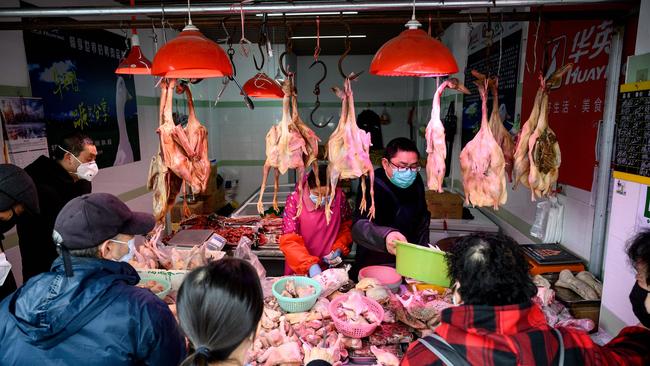COVID-19 origins: Why is the WHO still sticking up for live animal wet markets?
As if we needed more evidence of the World Health Organisation’s fumbling of coronavirus, they’ve now issued advice on ‘safely’ visiting live animal markets, writes James Morrow.

Rendezview
Don't miss out on the headlines from Rendezview. Followed categories will be added to My News.
Given that the COVID-19 coronavirus all but surely had its origins in the live animal “wet markets” of Wuhan, China, you would imagine that a major public health body like the World Health Organisation (WHO) might be calling for such fixtures to be shut down permanently and the practice of eating exotic creatures banned.
Particularly if that same WHO had previously downplayed the risk of the virus, which is claiming hundreds if not thousands of lives a day and pouring sand into the gears of the world economy, refusing to declare it a pandemic.
Well, you would be wrong.
No, instead of using its authority to crack down on these infamous wet markets – which are also thought to have given birth to the deadly SARS epidemic – the WHO is giving advice on how to visit such places safely.

That’s right. The WHO’s website is replete with advice on how to visit these markets, where all manner of exotic animals from snakes to civets to pangolins are kept alive in horrific conditions and slaughtered for local Chinese consumers who consider such creatures a status symbol.
“Anyone visiting live animal markets, wet markets, or animal product markets should practice general hygiene measures, including regular hand washing with soap and water after touching animals and animal products, avoiding touching eyes, nose, or mouth with hands, and avoiding contact with sick animals or spoiled animal products”, the WHO’s website reads, as if giving etiquette advice on visiting a house of worship.
Over on the WHO’s Facebook page, an infographic advises, “Shopping in wet markets? Stay healthy!”, and includes such helpful advice as “avoid contact with stray animals, waste and fluids in market.”

While the WHO – which has long been criticised for being heavily influenced by Beijing – passes on these helpful tips, it’s also worth noting that in February, even the Chinese legislature passed a ban on the exotic wildlife trade.
If only they’d thought to do so sooner.
Because scientists have long warned that the unsanitary and chaotic conditions in such markets could cause animal-borne diseases to mutate and make the jump to humans.

In the October, 2007 edition of Clinical Microbiology Reviews, published by the American Society for Microbiology, a quartet of doctors published a paper entitled, “Severe Acute Respiratory Syndrome Coronavirus as an Emerging and Reemerging Infection”.
In a section of the paper entitled, “Should we be ready for the reemergence of SARS”, the authors write, “The presence of a large reservoir of SARS-CoV-like viruses in horseshoe bats, together with the culture of eating exotic mammals in southern China, is a time bomb”.
And, it’s worth adding, one that has now gone off spectacularly.
James Morrow is the Opinion Editor of The Daily Telegraph.

